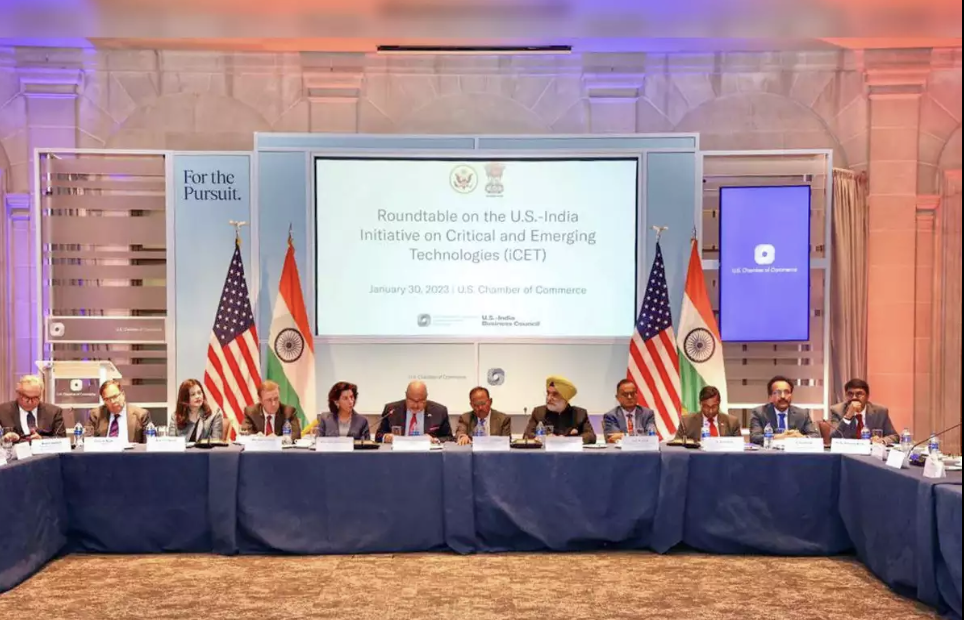India is an indispensable partner for the United States. India’s growing national capabilities give it greater tools to pursue its national interests to the benefit of the United States. Concerning economic enterprise and science and technology cooperation, the United States is India’s collaborator of choice. India’s English-speaking class, working in some of the top American MNCs comfortably partner with their counterparts in US firms and institutions. A crucial stride in this partnership between the two countries has been the initiative on Critical and Emerging Technology (iCET), setting the tone of this tech-driven engagement. The agreements signed during PM Modi’s visit represent the next stage of this partnership. While the fulfilment of these agreements in the upcoming months will depend on several factors, including the extent of tech transfer and application of US strategic export control regimes, the tone for deeper cooperation is set. Both countries are capitalizing on the opportunity presented by the momentous geopolitical shifts in India’s tech transformation and the over-arching international atmosphere.
The USA also wants India to succeed for numerous geopolitical and economic reasons. The world’s second-largest country is seen as a good buffer against Beijing’s expanding influence, while industrial leaders hope it can become a new centre of global production to supplement or replace China.
Taiwanese companies like Foxconn Technology Group and Pentagon Corp., are important contractors for US giants like Apple Inc. and Tesla Inc., which are keen to expand in the country and are signing up for India’s Make in India campaign.
But the most important technologies and the companies that make them are American. Contracts to supply Apple iPhones or Qualcomm Inc. chips won’t flow to factories in India if the original client doesn’t sign off on them.
Defining the dimensions of tech collaboration
In May 2022, India and the US announced the iCET to elevate and expand bilateral strategic technology partnerships and defence industrial cooperation. Spearheaded by the National Security Council on either side, the potential of both is being realized with the help of several research institutions engaged in tech research and development. During NSA Ajit Doval’s visit to the US in January 2023, both sides formally signed the iCET. They also announced several joint research initiatives to accelerate tech cooperation under it. Several key technologies, including artificial intelligence (AI), quantum technologies, advanced wireless, high-performance computing, space technologies, biotech and Next Generation Telecommunications. Besides these, in the sphere of defence tech, both sides also announced an “Innovation Bridge” to connect US and Indian defence startups.
The spate of agreements and collaborations announced during PM Modi’s visit represents the ensuing phase of the iCET plan. The bilateral agreements covered several critical technologies and created new mechanisms to take them forward. Among them, a few of the important ones are:
i) Open Radio Access Network (ORAN) Systems: India and the US have established a Joint Task Force to develop and deploy ORAN systems. This public-private research initiative will be jointly led by India’s Bharat 6G and the US Next G Alliance. Bharat 6G is a tech innovation group instituted by the Department of Telecommunications that brings together industry, startups, academia, research laboratories, standardization bodies and relevant government agencies. The ORAN partnership holds even more significance given the stranglehold of Chinese telecom companies like Huawei and ZTE in the 5G space. Unlike the Chinese 5G tech, which is predominantly proprietary hardware-based, ORAN creates a ‘network model to replicate signal processing functions’. Therefore, the India-US collaboration on ORAN is an important step towards establishing a more competitive and secure supply of equipment for telecom networks. It is expected to mobilise diverse players and vendors to join hands in developing a new interoperable telecom network. This effort will also likely go together with similar efforts from Japan, Australia, and the United Kingdom.
ii) Quantum Computing: Both countries have agreed to establish a joint Indo-US Quantum Coordination Mechanism to facilitate collaborative research between the public and private sectors. India is already engaged with Entanglement Exchange and the US Quantum Economic Development Consortium enabling multi-nation exchanges on quantum computing. Quantum technology has far-reaching implications for encryption, cryptography, aerospace engineering, sensors, modelling, simulation, etc.
iii) Artificial Intelligence: Both countries signed an implanting arrangement to support joint research on quantum, AI and advanced wireless technologies. This collaboration builds on the US-India Science and Technology Endowment Fund’s US$ 2 million grant for the joint development and commercialization of AI and quantum technologies. Notably, the deepening of cooperation on AI comes in the context of India’s “Chair of Global Partnership on AI”, where a multinational effort is underway to develop responsible, ethical, and trusted AI.
iv) Plugging into the national innovation ecosystems: India and the US also announced the launch of a new “Innovation Handshake” to connect the respective startup ecosystems. In the defence domain, the two sides launched the India-US Defence Acceleration Ecosystem or INDUS-X, building on the previously announced ‘Innovation Bridge’, creating a network of universities, incubators, corporations, think tanks and private investment stakeholders.
With these initiatives, India and the US are leveraging the already existing commercial synergy between Silicon Valley and India’s burgeoning defence innovation ecosystem. Many Indian startups have active participation from American venture capital firms. These include Celesta Capital (Bengaluru), Accel (Bengaluru) and WRV Capital (Mumbai).
